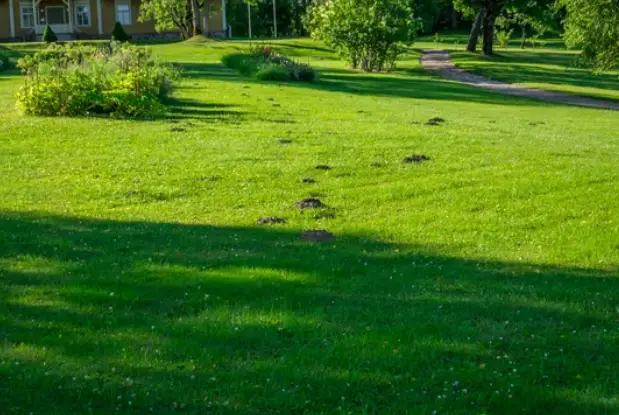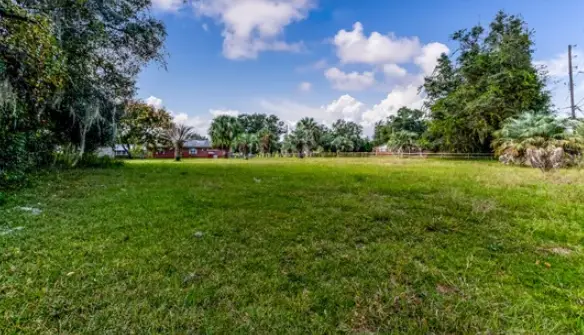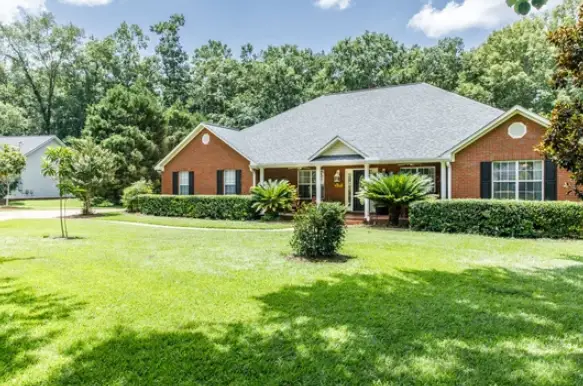What happens if you don’t mulch your lawn properly?
When it comes to bagging lawn grass or mulching lawn grass A lot of people don’t know which is better or if both are necessary.
However, they are both necessary so in this post, we are going to explain why mulching your lawn is important and what you need to do with your grass clippings down below.
Although everyone has their won’t preference when it comes to lawn mulching. We will share a few things you might need to know.
How to Choose the Best Grass Type and Why You Need to Maintain Your Lawn
Weeds can be a problem for any lawn. They can grow through the grass and make it difficult to maintain a beautiful lawn.
There are many different types of grasses, so it is important to choose the right type of grass before you start your project.
The best type of grass depends on where you live and what your climate is like.
If you live in an area that has a lot of humidity, then you should choose a type of grass that does well in moist environments such as; Kentucky Bluegrass or Fine Fescue.
If you live in a more dry area, then you should choose a type of grass that does well in dry areas such as; Bermuda or bald cypress.
If you live in an area that gets a lot of rain, then you should choose a type of grass that does well in wet areas such as; Kentucky bluegrass or zoysia grass.
If you have a lot of shade, you may want to plant Bermuda grass but don’t plant it too close to the sidewalk or garage because it can be difficult for mowers to cut under the thick canopy.

Importance of Mulching Your Lawn
Why You Should Mulch Your Grass and What Happens if You Don’t Mulch Properly?
Mulching is a process in which organic material, such as leaves, grass clippings, and vegetable waste are cut up and placed around the base of plants.
Also, It can be done either by hand or with the help of a mulcher.
Mulching is beneficial for plants because it helps retain moisture, prevents weeds from growing, and provides nutrients to the soil.
Mulching also has other benefits for your lawn.
For example, it helps reduce thatch buildup and improves soil structure by allowing air and water to permeate through it more easily.
It also provides a barrier against pests that might eat your lawn’s roots or seeds.
For these reasons and more, it’s recommended to use a mulching mower to cut your lawn.
The mulching mower cuts the grass down into small pieces which are left on the ground and will break down over time as they’re exposed to air, water, and sunlight.
This not only reduces your lawn’s need for watering but also helps control weeds that grow in the grass, and encourages the growth of new grass.
How To Mulch Grass in 4 Simple Steps
Mulching is the process of applying a thick layer of organic material, such as straw or wood chips, to the top of the soil in your garden. This is how to mulch your own lawn the right way in these simple steps.
1) Clear an area for mulching by removing any weeds and debris.
2) Spread a thin layer of organic material over your garden.
3) Add a thicker layer of organic material on top to prevent weeds from growing through it.
4) Water it to make sure it’s moist and then wait for the natural decomposition process to take place.
The Importance of Maintaining Your Lawn for a Healthy Garden.
Maintaining a lawn is not an easy task. It requires a lot of effort, time, and patience. You need to weed, water, fertilize and mow it on a regular basis to keep it looking healthy and beautiful.
When you are maintaining your lawn, you also need to ensure that the grass is not getting too long so that it does not choke the roots of other plants in your garden.
The more time you spend on maintaining your lawn for a healthy garden, the more beautiful it becomes.
How to Maintain Your Lawn

Mulching Your Lawn
There are many ways to maintain your lawn, but some of them are as follows:
1) There is no substitute for patience. Patience is the key to keeping your lawn healthy and beautiful. You could spend an entire day mowing your lawn, but you would still be better off if you just let it grow a bit every now and then.
2) When you water your lawn, do not over-water it. The best time to water your lawn is when the ground is not wet or saturated. You can water your lawn by hand, or use a sprinkler to cover a slightly bigger area.
3) If you have lawn algae, try adding some mulch to your garden. Lawn algae don’t need sunlight to grow; it’s just one of those troublesome types that put down roots and start growing out of control when it’s not watered regularly.
4) If you have a pond, try circulating the water in your pond using a fountain pump to aerate it.
The Benefits of Using Artificial Grass Vs. Natural Grass
Artificial grass is an alternative to natural grass. Artificial grass is a man-made turf that can be used in many different areas of the home for a variety of purposes.
Artificial grass has many benefits to offer over natural grass, including:
-It doesn’t require much maintenance or care.
-It is safe for pets and children.
-It can be installed on any surface, and it won’t require you to use fertilizers or pesticides.
-It is low-maintenance and doesn’t require you to water it often.
-It can be heated or cooled, depending on the surface.
The Drawbacks of Artificial Grass include
-Some artificial turf can cause allergies in some people.
-Artificial turf isn’t as soft as natural grass.
What to Do With Grass Clippings?
A lot of people do not know what to do with their grass clippings. They are a byproduct of the lawnmower and come in abundance after a good mowing session.
Some people might think that they are just going to go away on their own, but this is not the case.
The clippings need to be disposed of properly or they will build up and start to smell.
How To Dispose of Your Grass Clipping?
The first step in disposing of grass clippings is to rake them up and pile them in a corner of your yard.
This will get most of the clippings out of the way, but there will still be some leftovers on your lawn.
These can then be picked up with a shovel or leaf blower and thrown away in your garbage can or compost bin (depending on your preference).
If your clippings are leftover and haven’t been raked into a corner yet, you should wait until the next day to dispose of them.
The rest of the clippings will naturally decompose and break down into the dirt.
Some leaves will fall off trees throughout the fall and winter seasons, which can be disposed of in a compost pile.
However, if the leaves are being blown all over your lawn, it may be time to pick them up and dispose of them in your trash bin.
Leaving Grass Clippings On The Lawn Good or Bad?
The goal of the lawn care industry is to make a person’s yard look as green and lush as possible.
In order to do this, they typically recommend that homeowners leave grass clippings on the lawn after mowing.
However, there are some homeowners who believe that leaving grass clippings on their lawns is a bad idea.
They say that it can make the lawn look dull and brown.
They also say that it can cause problems with the amount of fertilizer or weed killer needed on the lawn in order to keep it looking healthy.
Conclusion
So based on what we know about mulching lawn grass, it is safe to say that mulching your lawn is somewhat critical for your lawn grass to grow. Not only that, but it helps to alleviate excess weeds from growing in your lawn grass This goes for garden craps and plants also.




